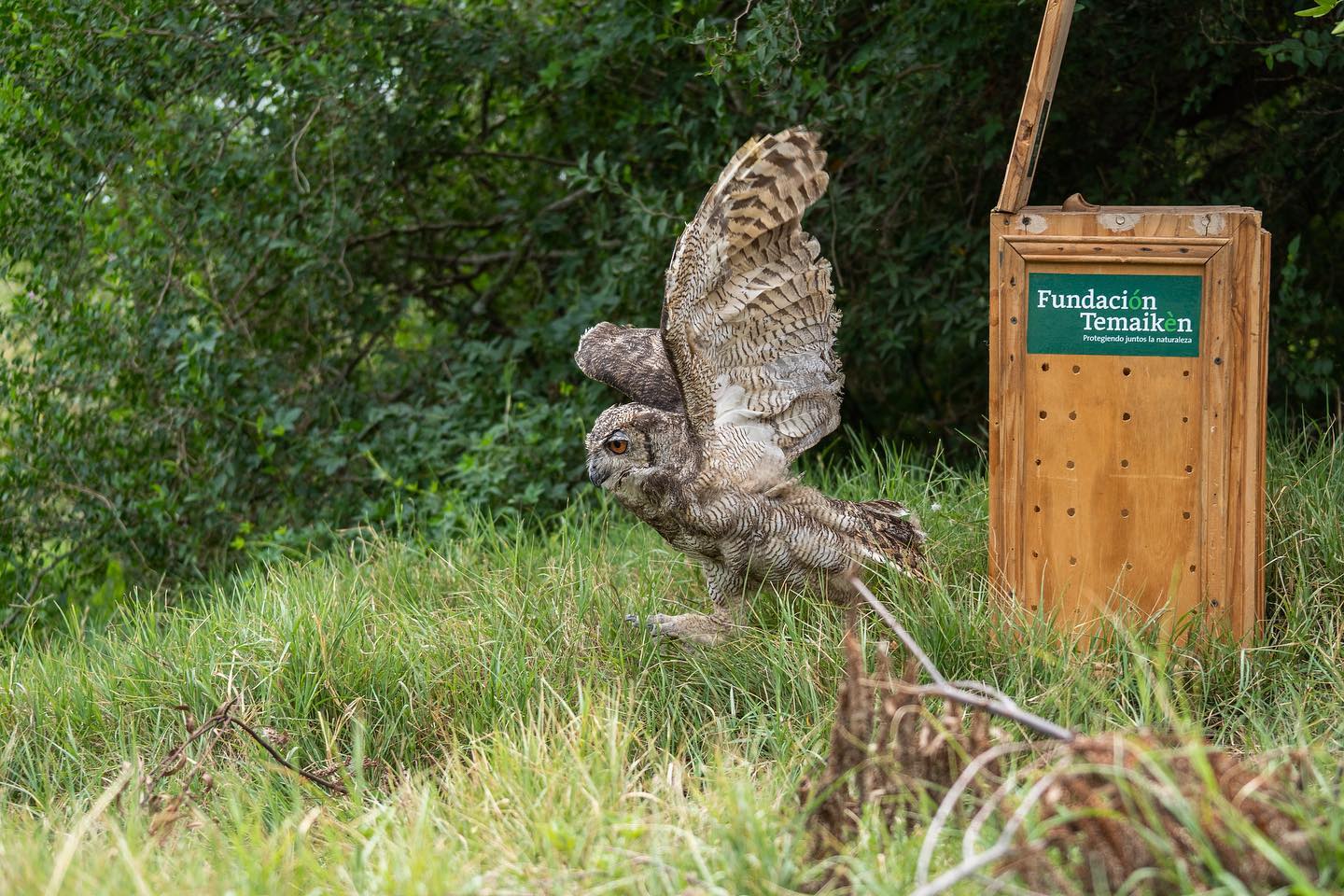Summary:
1. Wetlands are crucial for biodiversity, providing habitat for nearly 40% of the world’s plants and animals.
2. Reinserting fauna into natural reserves is important in protecting biodiversity.
3. Illegal wildlife trade significantly threatens biodiversity and wetland ecosystems.
4. Public participation and reporting can help combat wildlife trafficking and protect our natural heritage.
5. Collaboration between governmental organizations and conservation centers is key to successful reinsertion efforts.
REINSERTING FAUNA TO PROTECT BIODIVERSITY
Did you know that wetlands are beautiful landscapes and home to almost 40% of the world’s plant and animal species? These unique ecosystems provide essential services, such as reducing the risk of natural disasters and playing a crucial role in combating climate change. In light of the importance of wetlands, we are thrilled to announce the successful reinsertion of seven bird species into the Pilar Natural Reserve in Argentina’s Paraná Delta region.
These reinsertions were made possible through the joint efforts of the Ministry of Environment and Sustainable Development and the Pilar Natural Reserve. Three red-crested cardinals, a yellow goldfinch, a common house finch, a black-headed vulture, and a sub-billed owl, were all rescued from illegal wildlife trafficking and rehabilitated at the Species Recovery Center. Today, they have returned to their natural habitat, where they can continue contributing to the wetlands’ biodiversity.
The illegal wildlife trade is a significant threat to biodiversity worldwide. Animals like these birds often fall victim to smuggling, as they are sought after by collectors who value their beauty and rarity. Unfortunately, this demand drives a market that operates outside the bounds of legality and sustainability. By participating in the trade, individuals unknowingly contribute to the decline of species and the disruption of fragile ecosystems.
However, there is hope. We can all protect our biodiversity by refusing to participate in the illegal wildlife trade and reporting any suspicious activities to the appropriate authorities. This simple act can significantly impact the survival of species and the health of wetland ecosystems.
In addition to public participation, collaboration between governmental organizations and conservation centers is essential for successful reinsertion efforts. The Ministry of Environment and Sustainable Development enforces wildlife protection laws and conducts rescue operations. The Species Recovery Center plays a vital role in rehabilitating and preparing animals for their return to the wild. Together, they form a strong alliance focused on biodiversity conservation.
The reinsertion of fauna is a multifaceted process that requires careful planning and execution. A crucial step is ensuring the animals are healthy and can survive in the wild. This involves providing them with proper nutrition, medical care, and opportunities for socialization. The Pilar Natural Reserve offers a safe and suitable environment for these species to thrive again.
Moreover, reinsertion efforts are not limited to birds; they encompass a wide range of fauna found in wetland ecosystems. From mammals to reptiles and amphibians, each species plays a vital role in maintaining the delicate balance of these environments. By reintroducing them into their natural habitats, we strengthen the biodiversity of the wetlands, ensuring the long-term survival of both flora and fauna.
Society as a whole must recognize the importance of wetland ecosystems and the role they play in maintaining our planet’s biodiversity. By protecting and restoring these valuable habitats, we are preserving the beauty and uniqueness of these landscapes and ensuring a sustainable future for generations to come.
In conclusion, successfully reinserting seven bird species into the Pilar Natural Reserve is a small but significant step in protecting our biodiversity and wetland ecosystems. It serves as a reminder that we all have a role in conserving nature and combating the illegal wildlife trade. By refusing to participate in the trafficking of animals and reporting any suspicious activities, we can contribute to preserving our natural heritage. Let us come together and safeguard the diverse and fascinating life inhabiting our wetlands – for ourselves, future generations, and our planet’s health.
*****
Source Description
🌿 REINSERTAR FAUNA PARA PROTEGER LA BIODIVERSIDAD
💧¿Sabías que los humedales albergan casi el 40% de las plantas y animales del mundo*, además de disminuir el riesgo de desastres naturales y ser aliados en la lucha contra el cambio climático?
👉🏼 En esta fecha tan importante para la concientización sobre la importancia de los humedales, nos llena de orgullo anunciar que 7 aves fueron reinsertadas en la Reserva Natural del Pilar, en la región del Delta del Paraná. @reservadelpilar
Tres cardenales copete rojo, un jilguero amarillo, un corbatita común, un jote cabeza negra y un ñacurutú regresaron a su hábitat tras permanecer un tiempo en el Centro de Recuperación de Especies. 🩺
Todos fueron decomisados en procedimientos realizados por el Ministerio de Ambiente y Desarrollo Sostenible de la Nación @ambientenacion tras haber sido extraídos de la naturaleza, destinados a formar parte del comercio ilegal de animales silvestres.
⚠️ ¡No participar del tráfico de animales silvestres y denunciar su venta es la forma en que podés ayudar a proteger nuestra biodiversidad y a los humedales que de ella dependen!
*Según la Unión Mundial para la Conservación de la Naturaleza (IUCN) @redlist_of_ecosystems
ph: @noeliajauregui


